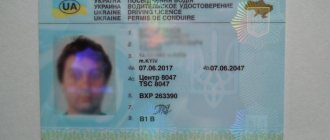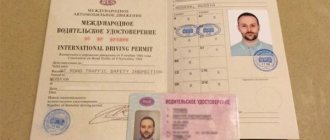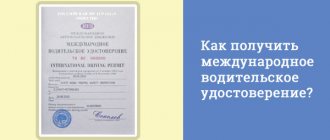The author of the article is professional tutor Elena Viktorovna Kaluzhskaya
The fundamental rights and freedoms of man and citizen of the Russian Federation are reflected in the Second Chapter of the Constitution of the Russian Federation. Let's combine them into several groups:
1. Personal (civil): the right to life and personal dignity, the right to freedom and personal integrity, as well as the inviolability of private life and home, freedom of movement and choice of residence, freedom to choose nationality and language of communication, freedom of conscience, the right to resist violence, to a fair trial.
2. Political: freedom of speech and belief, freedom of peaceful assembly and association, the right to take part in government.
3. Economic: the right to work, the right to rest, the right to participate in the management of an enterprise, the right to private property, the right to entrepreneurship, the right to strike.
4. Social: the right to social security (social insurance, pensions, medical care and health care), the right to an adequate standard of living, the right to housing, the right to education.
5. Cultural: the right to education, the right to access cultural values, the right to freely participate in the cultural life of society, the right to creativity, the right to enjoy the results of scientific progress.
Observance of human rights is monitored not only by government bodies, but also by authorized persons. The guarantor of human rights and freedoms is the President of the Russian Federation (Article 80, paragraph 2 of the Constitution of the Russian Federation). In 1996, the post of Commissioner for Human Rights (Ombudsman) was established in Russia, and in 2009 – the Commissioner for Children’s Rights.
Responsibilities of man and citizen. They are contained in the Constitution of the Russian Federation:
1. Compliance with the Constitution and laws of the Russian Federation (Article 15, paragraph 2). 2. Respect for the rights and freedoms of others (Article 17, paragraph 3). 3. Caring for your children and disabled parents (Article 38, paragraphs 2,3). 4. Receiving basic general education (9 classes) (Article 43, paragraph 4). 5. Caring for historical and cultural monuments (Article 44, paragraph 3). 6. Payment of taxes and fees (Article 57). 7. Respect for nature and the environment (Article 58). 8. Defense of the fatherland (Article 59).
Legal capacity is the ability to have rights and obligations according to the laws of Russia (appear from birth). For example, the right to life, name, dignity.
Legal capacity is the ability to exercise legal rights and obligations by one’s conscious actions (acquired gradually). For example, young children from 6 to 14 years old can only make small household transactions. Minors from 14 to 18 years old can, with the permission of their parents, make various transactions, manage their earnings, and have copyrights.
Tort capacity – the ability of a person to bear responsibility for committed offenses: from 14 years of age – partial criminal and civil liability; from 16 years of age – full criminal, administrative and disciplinary liability; from 18 years of age – full civil liability.
Constitutional principles of human and civil rights and freedoms in Russia
To characterize the legal status of an individual, not only the actual volume of rights and freedoms assigned to a person is important, but also those principles and principles on the basis of which their use is carried out. Their impact on the legal status of an individual is multifaceted.
They show whether the state ensures equality of rights and freedoms of man and citizen, whether the state is active in observing and protecting these rights and freedoms, whether the state fully and fully recognizes those rights that correspond to the level of material and technical development achieved by society, whether there are any boundaries in the use of rights and freedoms, whether their restrictions are allowed, whether a person has legal mechanisms to protect his rights and freedoms.
Lawyer services in Moscow, free legal advice in Moscow.
So, the principles of the legal status of an individual are those principles recognized and protected by law and the state, on the basis of which the use of the rights and freedoms of man and citizen and the fulfillment of his duties are carried out. The principles under consideration are universal. They define the features of the status of all members of society and apply to all rights, freedoms and obligations without exception, regardless of what branch of law they are recorded.
When characterizing the principles, their conceptual essence, embedded in the norms of the Constitution of the Russian Federation, is revealed. However, it should be taken into account that their practical implementation is currently not adequately ensured. This is explained by the peculiarities of the transition period in the formation of a market economy, the scarcity of financial resources of the state, political instability, and the difficulties of rebuilding society.
The 1993 Constitution enshrines the following principles of the legal status of the individual, which are directly related to the initial principles of the concept of human rights established in the state.
1. The rights, freedoms and responsibilities of man and citizen are realized on the basis of equality. This is the main principle characterizing the legal status of an individual. The content of the principle under consideration is multifaceted. In Art. 19 of the Constitution, its three main aspects are highlighted: equality of all before the law and the court; equality of rights and freedoms of man and citizen; equality of men and women.
Equality of all before the law and the court means that the law and its regulations are equally binding for all its addressees, that the court is fully accessible to everyone and should be guided only by the law, and not by any extraneous considerations and not take into account those not provided for by law circumstances relating to the person seeking judicial protection or answering before the court for his actions.
Equality of human and civil rights and freedoms means that they are recognized equally for all people; discrimination in the enjoyment of rights and freedoms is not allowed on any grounds depending on the natural characteristics of the individual and his social status. The Constitution fixes a wide, and not closed, list of such grounds.
Equality of rights and freedoms is recognized regardless of gender, race, nationality, language, origin, property and official status, place of residence, attitude to religion, beliefs, membership in public associations, as well as other circumstances.
Depending on the above and other personal and social characteristics of a person, he cannot be granted any privileges or infringement of rights in comparison with others.
As a free aspect of equality, the Constitution identifies equal rights and freedoms for men and women and equal opportunities for their implementation. The need for this is due to the fact that the problem of equalizing rights based on gender is still far from being resolved both in our country and on a global scale. The former USSR ratified the 1979 UN Convention on the Elimination of All Forms of Discrimination against Women, and a lot has been done in our country in this regard.
However, equal opportunities for realizing women's rights are still not provided. Women are poorly represented in leadership positions; there are few of them, in particular, among deputies and entrepreneurs. In conditions of growing unemployment, women are often “candidates” for dismissal; their opportunities for obtaining a new job are reduced.
The constitutional norm is aimed at providing a legal basis for the protection of women's rights. From any form of discrimination based on gender.
The Constitution understands equality of rights and freedoms of man and citizen as equality of opportunity, and not as actual equality, which is really unattainable in life. Since each person, due to subjective and objective reasons and circumstances, realizes his capabilities differently and reveals his creative potential, people do not have the same abilities for proactive, independent activities that ensure an appropriate standard of living.
Of course, the state must use legal means to reduce the sharp gap in citizens' incomes. For this purpose, a differentiated tax system is used. The fight against criminal sources of income, which are widespread in the life of society at this stage, is of utmost importance. This struggle is being waged very weakly, which leads to an unjustified increase in stratification in terms of income and material security of the population.
2. The rights, freedoms and responsibilities of a person and a citizen are based on their guarantee.
This principle receives legal expression in various forms - as a general principle for the implementation of the entire scope of individual rights and freedoms, and as specific guarantees of each right and each freedom separately.
As a general principle of the legal status of an individual, this principle is enshrined in a number of articles of the Constitution. Thus, Article 2 establishes as one of the foundations of the constitutional system the duty of the state to recognize, respect and protect the rights and freedoms of man and citizen. In addition to these general rules on guarantees, in fact, each specific right and each specific freedom is accompanied by an indication of the methods of their guarantees.
The most detailed and specific provisions in (Articles 46-54) of the Constitution of the Russian Federation are the guarantees of human rights in cases where we are talking about bringing him to criminal responsibility, applying coercive measures against him, or depriving him of his freedom. The system of such guarantees enshrined in the Constitution determines the appropriate direction of criminal procedure and criminal legislation.
The constitutional enshrinement of the principle of guaranteeing the rights and freedoms of man and citizen has its development in current legislation relating to all branches of law, in particular to constitutional law. The updated civil, criminal, administrative, procedural and other legislation has significantly expanded the legal guarantees of rights and freedoms.
Despite the importance of the legal consolidation of guarantees of rights and freedoms, their implementation requires many conditions, including those lying outside the scope of law: economic, political and others.
3. The legal status of an individual is based on the presumption of inalienability of the rights and freedoms of man and citizen, and the inadmissibility of restricting rights and freedoms. This principle follows from the recognition of rights and freedoms as inalienable and belonging to a person from birth.
In Article 55, the Constitution stipulates that in the Russian Federation laws should not be issued that abolish or impede the rights and freedoms of man and citizen. In addition to this prohibition on legislative restrictions on rights and freedoms, the Constitution establishes an important rule that they are directly applicable.
In protecting the legal status of an individual, the constitutional norm is important that any normative acts affecting the rights, freedoms and duties of a person and a citizen cannot be applied unless they are officially published for public knowledge (Article 15, Part 3 of the Constitution of the Russian Federation).
In Art. Article 17 of the Constitution provides that the exercise of human and civil rights and freedoms must not violate the rights and freedoms of other persons. From this follows the need for the lawful use of their rights and freedoms by every person, without violating the provisions of the law, especially the Constitution.
In certain extreme situations, there may be an objective need for temporary restrictions on rights and freedoms. The Constitution of the Russian Federation strictly stipulates the scope, procedure and reasons for such restrictions.
In Part 3 of Art. 55 of the Constitution establishes that the rights and freedoms of man and citizen can be limited by federal law only to the extent necessary in order to protect the foundations of the constitutional system, morality, health, rights and legitimate interests of other persons, ensuring the defense of the country and the security of the state. This general rule is specified in Art. 56, which establishes the admissibility of certain restrictions on rights and freedoms in a state of emergency.
Certain restrictions may be introduced by mandatory indication of the limits and duration of their validity. In this case, the following are not subject to restrictions: the right to life, the right to protect personal dignity, the right to privacy, personal and family secrets, protection of honor and good name, freedom of conscience, freedom of religion, the right to housing, a number of rights associated with various forms participation in legal proceedings, etc.
4. The legal status of an individual is based on the possession by each person of not only rights, but also responsibilities.
This universal principle is expressed not only in the fact that everyone has both rights and responsibilities, but also in the fact that many rights are also responsibilities - some in a legal sense, others in a moral sense, in the form of a public duty.
So, in part 2 of Art. 38 of the Constitution stipulates that caring for children and raising them is an equal right and responsibility of parents. In Art. 59 it is written that the defense of the Fatherland is the duty and responsibility of a citizen of the Russian Federation. Article 42 establishes that everyone has the right to a favorable environment, and Art. 58 says that everyone is obliged to preserve nature and the environment.
Rights such as the right to education, voting rights, etc. have the nature of a public duty.
The principle in question is expressed in Art. 6 of the Constitution and is addressed specifically to the citizen of the Russian Federation, and, we emphasize, in Article 1 “Fundamentals of the Constitutional System”. In Part 2 of Art. 6 establishes that every citizen of the Russian Federation has all rights and freedoms on its territory and bears equal responsibilities provided for by the Constitution of the Russian Federation.
5. Consolidation of individual rights and freedoms in the Russian Federation by international legal acts.
Human rights are reflected in detail in the Universal Declaration of Human Rights adopted by the UN General Assembly (1948).
An important role from the point of view of reality, guarantees of the implementation of human rights and freedoms is played by the International Covenant on Civil and Political Rights and the International Covenant on Economic, Social and Cultural Rights (ratified by the USSR in 1973).
These acts provide a more detailed list of human and civil rights, and in addition, the Covenant on Civil and Political Rights provides for the creation of a Human Rights Committee responsible for observing and taking measures to implement the rights recognized in this Covenant.
In 1984, a similar Committee on Economic, Social and Cultural Rights was created. Both covenants constituted a kind of international code of human and civil rights, and the participating states assumed the obligation to take the necessary legislative measures to ensure the rights and freedoms provided for in the covenants.
The most important international legal instrument on human rights is the European Convention for the Protection of Human Rights and Fundamental Freedoms, adopted in Rome on November 4, 1950 (Russia ratified on March 30, 1998). The Convention and its associated protocols (there are currently eleven of them) enshrine fundamental rights and freedoms, criminal procedural guarantees, property and other rights.
To protect these rights and freedoms, the European Court of Human Rights was established, whose jurisdiction extends to all cases relating to the interpretation and application of the Convention. The parties to the Convention are members of the Council of Europe, which is an intergovernmental organization. According to Art. 3 of the Charter of this organization, each member of the Council of Europe must recognize the principle of the rule of law and the principle that all persons within its jurisdiction shall enjoy human rights and fundamental freedoms.
Any European state that is considered capable and striving to comply with the provisions of Article 3 can also become a member of the Council of Europe (in this status, set out in Article 4 of the Charter, Russia was admitted to the Council in 1996).
There are other international legal instruments on human rights: the European Convention for the Prevention of Torture and Inhuman or Degrading Treatment or Punishment, the International Convention on the Elimination of All Forms of Racial Discrimination, etc.
Serious documents in this area - conventions and recommendations - have been adopted by a specialized UN organization - the International Labor Organization (ILO). An important channel for promoting the human rights and freedoms of citizens is the Organization for Security and Cooperation in Europe (OSCE). In the Final Act of the Conference on Security and Cooperation in Europe, held in 1975, one of the sections is devoted to human rights and freedoms and contains obligations of the participating states (which include Russia) to respect and observe these rights and freedoms.
Any member state of this organization has the right to draw the attention of other member states through diplomatic channels to facts of human rights violations in any member state. Cooperation in the field of human rights and freedoms is the content of the concept of the “human dimension of the OSCE”.
Major conferences were held on this problem in Madrid, Paris, Copenhagen, Vienna, and Moscow. The Charter for a New Europe adopted in Paris pays great attention to the rights and freedoms of man and citizen.
These international legal acts served as the basis for the corresponding chapter in the Russian Constitution. Part 1 of Article 17 establishes: “In the Russian Federation, the rights and freedoms of man and citizen are recognized and guaranteed in accordance with the generally recognized principles and norms of international law and in accordance with this Constitution.” The global legal status of man and citizen will probably become a feature of the future civilization.
The stability and unity of the legal status in modern Russia are undermined by the processes of sovereignization, interethnic and regional conflicts. A number of former Soviet republics have adopted discriminatory laws that violate fundamental human rights: ethnic cleansing is carried out. Large groups of people appeared (refugees, internally displaced persons) without any clear legal status at all.
Several tens of millions of Russian citizens suddenly, against their will, turned into “foreigners.” Their situation worsened sharply. In turn, a huge mass of people from neighboring countries ended up on Russian territory. The status of the state itself became different.
The International Bill of Human Rights consists of five documents:
1. Universal Declaration of Human Rights (December 10, 1948); 2. Covenant on Economic, Social and Cultural Rights (1966); 3. Covenant on Civil and Political Rights (1966); 4. Protocol to the Covenant on Civil and Political Rights - Regulations on the procedure for considering individual complaints (1966); 5. Protocol to the Covenant on Civil and Political Rights aimed at the abolition of the death penalty (1989).
Did you find what you were looking for? Share with your friends!
You need to know the material presented not only to prepare for the Unified State Exam. To fit into the social system and feel confident, first of all, we must know our rights and responsibilities well!









